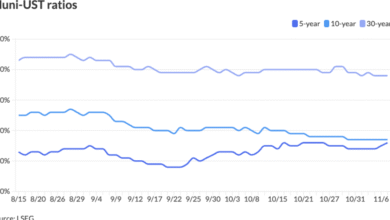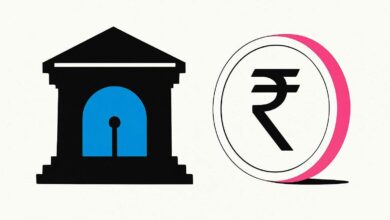National Debt Hits $38 Trillion, Mortgage Rates to Remain High Long-Term – News and Statistics

Oct 23, 2025
The ongoing government shutdown is hindering the economy, with the national debt reaching a new high according to a report from Yahoo Finance. The Treasury Department reported on Thursday that the national debt has exceeded $38 trillion. This level of federal indebtedness could affect the housing market and mortgage rates.
Were moving farther from the world of 4% mortgages
While mortgage rates have been falling lately, the likelihood of drastic drops is fading. “Were not going back to the world of 3% mortgage rates, pretty unlikely to get back to the world of 4% mortgage rates,” Jeff Tucker, principal economist for Windermere Real Estate in Seattle, said. “So instead, were going to be in a world of higher interest rates for the medium- to long-term.”
Tucker stated that the increasing U.S. debt “will require a higher yield on the debt to keep financing it, to keep lending to the government essentially.” He added, “The most relevant consequence of the higher national debt for the housing market, in particular, is higher borrowing costs in the medium- to long-term.”
The bond market may hit a wall, leading to mortgage rate increases
The 10-year Treasury is a daily marker for mortgage rates, generally moving in unison with a spread of two percentage points or more between them. While 10-year Treasury yields had been near 4% recently, more than one housing market observer believes that Treasury and mortgage rates may already be bottoming out.
At the Mortgage Bankers Associations annual conference in Las Vegas on Monday, former Treasury Secretary Larry Summers predicted the bond market will “hit a wall” sometime in the coming years, and bond yields will begin to move much higher. Summers said the 10-year Treasury yield could jump 75 basis points within weeks of the bond market transition, and mortgage rates would rise by a full percentage point at the same time. “I think thats probably the most likely consequence of the path were on,” he added.
MBA chief economist Mike Fratantoni presented his latest economic forecast at the same meeting. He expected mortgage interest rates to remain in the 6% to 6.5% range through the end of 2028. “As we move over the next couple of years, we think its more likely that [long-term] rates are going to go up rather than down, given the fiscal pressures on the economy,” Fratantoni said.
The national debt is not a short-term issue
The national debt is an issue that could affect the housing market and mortgage rates for decades. An analysis by the Budget Lab at Yale reported that the increasing national debt will move the 10-year Treasury yield 1.4 percentage points higher by 2054. With the traditional spread in Treasury yields and mortgage rates of about 2 percentage points, that could mean home loan rates close to 7.5%.
The Bipartisan Policy Center, a nonprofit think tank, believes the rapidly rising national debt is “bad news for renters, homeowners, and developers alike.” The organization wrote in a June report that “Debt-driven high interest rates can lead to inflation, which may cause developers to scrap their blueprints and contribute to housing scarcity. It also means that families are left with fewer choices and higher mortgages.”
A world of higher interest rates
Windermere’s Tucker said the housing market will need to adjust to a new reality. “Nobody should be buying a home, counting on a plan to refinance down their interest rate by two points in a few years because theres really no guarantee that will happen, and in fact, it looks unlikely that will be available,” he said. “Mortgage borrowers should come to terms with being in a world of higher interest rates.”






